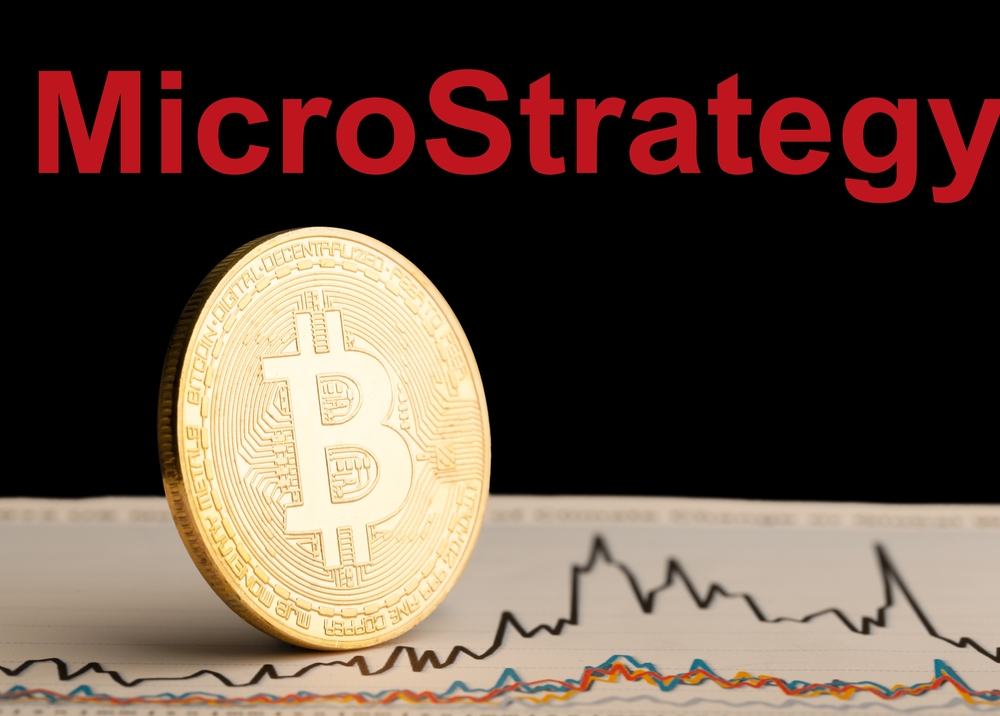Table of Contents
ToggleIntroduction
Bitcoin has taken the financial world by storm, soaring to new heights and capturing global attention. The world’s first cryptocurrency recently hit a record high of $89,623, showcasing its growing influence in the digital economy. This surge has many investors and enthusiasts buzzing about Bitcoin’s potential.
The rise of Bitcoin has been nothing short of meteoric. From its humble beginnings in 2009 to its current status as a major financial asset, Bitcoin has transformed the way people think about money and value transfer. Its decentralized nature and limited supply have made it an attractive option for those seeking alternatives to traditional currencies.
As Bitcoin continues to gain traction, it’s not just individual investors who are taking notice. Major companies like MicroStrategy have invested billions in Bitcoin, signaling growing institutional acceptance. This shift in perception has helped fuel Bitcoin’s remarkable ascent, leading some to wonder just how high this digital rocket can fly.
Key Takeaways
- Bitcoin’s value has reached unprecedented levels, attracting widespread attention
- The cryptocurrency’s rise reflects changing attitudes towards digital assets
- Major companies and institutions are increasingly embracing Bitcoin as a legitimate investment
The Evolution of Bitcoin
Bitcoin has undergone remarkable changes since its inception. Its journey from a revolutionary concept to a global financial phenomenon has been marked by key milestones and dramatic price movements.
Conceptual Foundations
Bitcoin emerged from the idea of a decentralized digital currency. It aimed to solve issues like double-spending and the need for trusted third parties in online transactions. The concept was first outlined in a 2008 whitepaper by an unknown person or group using the pseudonym Satoshi Nakamoto.
The whitepaper described a peer-to-peer electronic cash system. It introduced innovative elements like blockchain technology and proof-of-work consensus. These ideas laid the groundwork for a new financial ecosystem.
Bitcoin’s design incorporated cryptographic techniques to secure transactions. It also outlined methods to control the creation of new units, challenging traditional banking structures.
Bitcoin’s Genesis Block and Historical Milestones
On January 3, 2009, the first Bitcoin block, known as the Genesis Block, was mined. This event marked the official birth of the Bitcoin network. The first Bitcoin transaction occurred shortly after, on January 12, 2009.
Early adoption was slow, with Bitcoin mainly attracting tech enthusiasts and cryptography experts. The first real-world Bitcoin transaction took place in May 2010, when 10,000 BTC were used to buy two pizzas.
Over time, Bitcoin gained more attention and adoption. Key milestones included:
- 2011: WikiLeaks begins accepting Bitcoin donations
- 2013: Bitcoin price surpasses $1,000 for the first time
- 2017: Bitcoin futures contracts introduced on major exchanges
Significant Price Movements and ATH
Bitcoin’s price history has been marked by extreme volatility and dramatic price movements. Its first major price surge occurred in 2013, when it briefly topped $1,000.
The most significant bull run started in 2017. Bitcoin’s price skyrocketed to nearly $20,000 in December 2017, setting a new all-time high (ATH).
After a prolonged bear market, Bitcoin surged again in 2020 and 2021. It reached its current ATH of over $68,000 in November 2021.
Following this peak, Bitcoin experienced a sharp decline. By late 2022, its price had dropped to around $16,000. However, it has since shown signs of recovery, demonstrating its resilience in the face of market volatility.
Bitcoin as a Financial Asset
Bitcoin has emerged as a significant player in the financial world. It offers unique characteristics that set it apart from traditional assets. Let’s explore how Bitcoin compares to other investments and its performance in various markets.
Comparing Bitcoin to Stocks, Gold, and Equities
Bitcoin differs from stocks, gold, and equities in several key ways. Unlike stocks, Bitcoin doesn’t represent ownership in a company. It’s more similar to gold as a store of value, but with added digital benefits.
Bitcoin’s volatility is often higher than traditional assets. This can lead to bigger gains, but also larger losses. In 2024, Bitcoin reached new all-time highs, surpassing $68,000.
One advantage of Bitcoin is its 24/7 trading availability. Stocks and most equities have limited trading hours. Gold, while tradable around the clock, doesn’t offer the same ease of transfer as Bitcoin.
Bitcoin and Futures Markets
Bitcoin futures allow investors to speculate on BTC’s future price without owning the asset. These products have gained popularity on major exchanges.
The introduction of Bitcoin ETFs in 2024 marked a significant milestone. It opened up Bitcoin investment to a wider audience through traditional financial instruments.
Futures markets help with price discovery and can reduce volatility. They also provide ways for investors to hedge their Bitcoin holdings against potential price drops.
Performance Against the Dow and Nasdaq Indices
Bitcoin’s performance often differs from major stock indices like the Dow and Nasdaq. While these indices represent a broad range of companies, Bitcoin is a single asset.
In recent years, Bitcoin has outperformed both indices in terms of percentage gains. For example, Bitcoin rose over 45% in early 2024, far exceeding the returns of the Dow and Nasdaq.
However, Bitcoin’s volatility means it can also experience sharper declines. Investors often view Bitcoin as a high-risk, high-reward asset compared to more stable index funds.
The growing acceptance of Bitcoin by institutional investors has led to increased correlation with traditional markets at times. This relationship continues to evolve as Bitcoin matures as a financial asset.
Technological Aspects of Bitcoin
Bitcoin’s technology combines advanced cryptography, decentralized networks, and innovative economic incentives. These elements work together to create a secure and efficient digital currency system.
Bitcoin Wallets and Security
Bitcoin wallets are essential tools for storing and managing BTC. They come in various forms, including software, hardware, and paper wallets. Each type offers different levels of security and convenience.
Software wallets are apps on computers or smartphones. They’re easy to use but may be vulnerable to hacking.
Hardware wallets are physical devices that store Bitcoin offline. They provide strong security against online threats.
Paper wallets are printed sheets with Bitcoin addresses and private keys. They’re immune to digital attacks but can be lost or damaged.
All wallets use complex encryption to protect users’ funds. They generate unique addresses for receiving Bitcoin and require private keys for spending.
Public Vanity Addresses and Anonymity
Public vanity addresses are custom Bitcoin addresses that include specific words or patterns. They make addresses more memorable but don’t affect security.
Creating vanity addresses requires significant computing power. Users can generate them with specialized software or pay for custom address creation services.
While Bitcoin transactions are public, they’re pseudonymous. Addresses aren’t directly linked to real-world identities.
Users can enhance privacy by using new addresses for each transaction. This practice makes it harder to trace transaction histories.
Some wallets offer built-in mixing services to further obscure transaction trails. These services combine multiple users’ transactions, making them more difficult to track.
Astrobotic Technology and Space Economy
Astrobotic Technology is pioneering the use of blockchain in space. They’re exploring ways to integrate Bitcoin and other cryptocurrencies into space missions.
One proposed application is using Bitcoin for automated payments between satellites. This could streamline operations in the growing satellite network industry.
Astrobotic is also investigating blockchain for secure data storage in space. This technology could protect critical mission information from tampering.
The space economy is expanding rapidly. Bitcoin and blockchain could play key roles in space-based financial systems.
Potential uses include funding space projects through cryptocurrency crowdfunding and enabling micro-transactions for space-based services.
Bitcoin’s Influence on Space Exploration
Bitcoin has made its way into space exploration, connecting digital currency with cosmic ventures. This surprising partnership has led to unique collaborations, physical representations, and even transactions beyond Earth’s atmosphere.
Collaboration with NASA and Private Sector
NASA and private space companies have shown interest in Bitcoin technology. Some firms are exploring blockchain for satellite communications. This could improve data security and tracking in space missions.
Bitcoin’s decentralized nature appeals to space agencies. It might help manage resources on future Mars colonies. Private companies are also looking at Bitcoin for space tourism payments.
These partnerships push both space tech and cryptocurrency forward. They create new ways to fund and run space projects.
Physical Bitcoins and Commemorative Items
Space missions now carry physical Bitcoins as symbolic gestures. A recent lunar mission included a Bitcoin wallet on its journey to the moon. This wallet contained 1 BTC, making it the first cryptocurrency to reach lunar orbit.
The Kennedy Space Center has hosted launches with Bitcoin payloads. These events blend space enthusiasm with crypto interest. They create unique collectibles for both communities.
Such items serve as time capsules. They mark Bitcoin’s role in modern space exploration. Collectors and enthusiasts value these space-flown coins highly.
Astronauts and Bitcoin Transactions
Astronauts have started using Bitcoin in space. The International Space Station saw its first Bitcoin transaction in 2020. This proved that crypto could work beyond Earth’s financial systems.
Space travelers now learn about digital currencies as part of their training. They might use Bitcoin for personal transactions while in orbit. This could solve issues with traditional banking in space.
These cosmic transactions show Bitcoin’s potential for future space economies. They pave the way for financial systems on other planets or space stations.
Bitcoin in Popular Culture and Media
Bitcoin has made its mark on popular culture and media, influencing magazines, attracting celebrity advocates, and inspiring creative works. Its growing presence reflects its increasing mainstream acceptance and cultural significance.
Bitcoin Magazine and Mainstream Adoption
Bitcoin Magazine played a crucial role in spreading awareness about cryptocurrency. Founded in 2012, it became the first publication focused solely on Bitcoin and blockchain technology. The magazine covers:
• Technical developments • Market analysis • Regulatory updates • User adoption stories
Its articles have helped demystify Bitcoin for newcomers and provided in-depth insights for experienced users. As Bitcoin gained popularity, mainstream financial publications also began regular coverage.
Forbes, Bloomberg, and The Wall Street Journal now feature dedicated cryptocurrency sections. This shift in media attention has contributed to Bitcoin’s wider acceptance in financial circles.
Notable Personalities and Bitcoin Advocacy
Several high-profile individuals have become vocal Bitcoin supporters:
- Elon Musk – Tesla CEO, temporarily accepted BTC for car purchases
- Jack Dorsey – Twitter co-founder, integrated Bitcoin tipping on the platform
- Michael Saylor – MicroStrategy CEO, converted company reserves to BTC
These advocates have used their platforms to educate the public about Bitcoin’s potential. Their endorsements often lead to price movements and increased public interest.
Sports figures like NFL player Russell Okung and boxer Mike Tyson have also embraced Bitcoin. Okung famously converted half his salary to BTC, highlighting its appeal beyond tech and finance circles.
Bitcoin’s Portrayal in Cinema and Literature
Bitcoin and cryptocurrency have inspired various works of fiction:
Films: • “The Rise and Rise of Bitcoin” (2014) – Documentary on Bitcoin’s early days • “Crypto” (2019) – Thriller featuring cryptocurrency-related crime
Books: • “Bitcoin Billionaires” by Ben Mezrich – Non-fiction account of the Winklevoss twins’ Bitcoin journey • “The Truth Machine” by Paul Vigna and Michael Casey – Explores blockchain’s potential impact
These works have helped introduce Bitcoin concepts to wider audiences. They often explore themes of financial revolution, technological innovation, and the challenges of a rapidly changing digital landscape.
TV shows like “Silicon Valley” and “Mr. Robot” have also incorporated Bitcoin storylines, further cementing its place in pop culture narratives.
Frequently Asked Questions
Bitcoin’s price and market dynamics involve many complex factors. Recent events and expert predictions shape its trajectory. Understanding key aspects helps investors make informed decisions.
What factors influence the price of Bitcoin?
Supply and demand play a major role in Bitcoin’s price. Economic conditions and regulatory changes also impact its value. Investor sentiment and media coverage can cause price swings.
Technological advancements in the Bitcoin network may affect its perceived utility and value. Major companies adopting Bitcoin can boost its price.
How does recent news impact Bitcoin’s volatility?
News events often trigger rapid price movements in Bitcoin. Positive developments like ETF approvals can cause price spikes. Negative news such as regulatory crackdowns may lead to sell-offs.
Bitcoin’s price reacts quickly to unexpected announcements from influential figures or companies. Market sentiment can shift dramatically based on breaking news.
What are expert predictions for the future value of Bitcoin?
Experts offer varied predictions for Bitcoin’s future value. Some analysts forecast continued growth based on increasing adoption and limited supply. Others warn of potential bubbles or regulatory risks.
Long-term predictions range from extreme bullishness to skepticism about Bitcoin’s sustainability. It’s important to consider multiple expert opinions and conduct independent research.
How can one review the performance of Bitcoin?
Investors can track Bitcoin’s price history on cryptocurrency exchanges and financial websites. Charts and technical analysis tools help visualize price trends over time.
Comparing Bitcoin’s performance to other assets provides context. Metrics like market capitalization and trading volume offer insights into its overall health.
What are the features of the Bitcoin-based applications?
Bitcoin-based applications often focus on financial services like wallets, payment processors, and exchanges. Some apps provide educational resources about Bitcoin and blockchain technology.
Security features are crucial in Bitcoin applications. Many include multi-factor authentication and encryption to protect users’ funds.
What are the mechanics and rules of Bitcoin-themed games?
Bitcoin-themed games often incorporate elements of mining, trading, or investing. Some games reward players with small amounts of real Bitcoin or virtual currencies.
Rules typically simulate aspects of the Bitcoin ecosystem. Players may need to manage virtual mining rigs or trade digital assets based on simulated market conditions.












